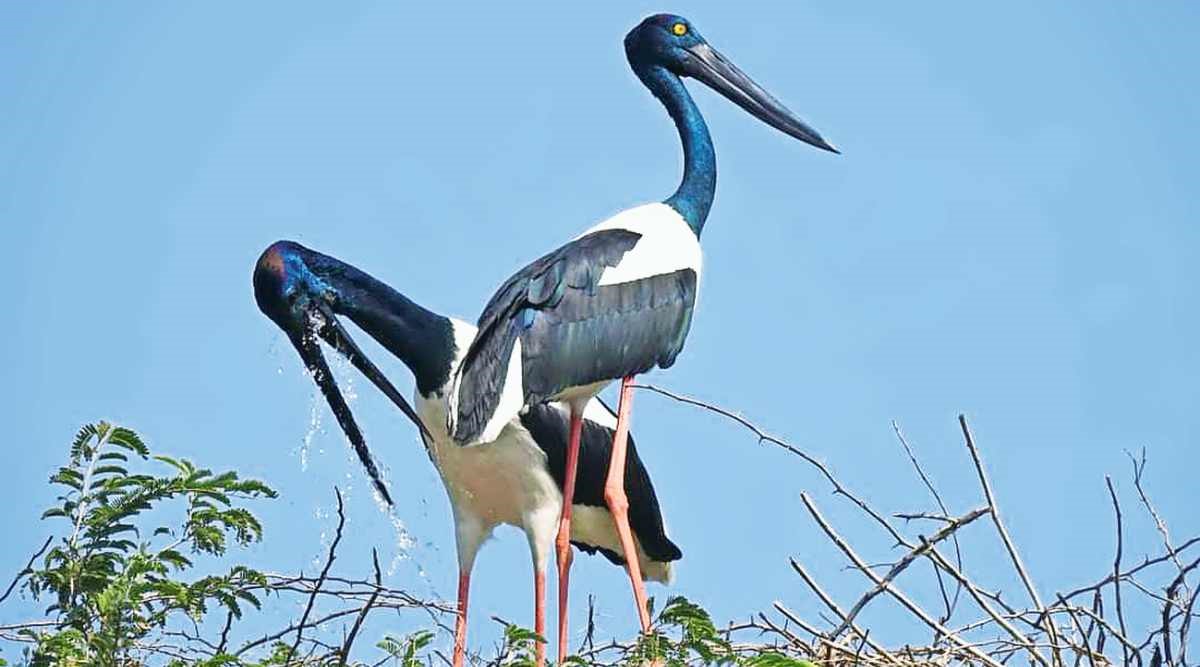Description

Disclaimer: Copyright infringement not intended.
Context: The black-necked stork was recorded for the second consecutive year in Porbandar, while two tagged demoiselle cranes were also sighted during a two-day bird count that concluded in Porbandar
Details:
- BNS (Ephippiorhynchus asiaticus) is categorised as a near-threatened species on the Red List of the International Union for Conservation of Nature (IUCN) due to its declining population trend globally largely on account of habitat loss.
- It is considered a rare bird in Gujarat due to its small population size.
- The Khijadiya Bird Sanctuary near Jamnagar and the Marine National Park along the coast of Jamnagar and Devbhumi Dwarka district harbour the largest population of BNS in Gujarat.
- The species has been breeding successfully in Khijadiya, a Ramsar site, as well as in the coastal wetland area.
- Birds of this species are also sighted in Bharuch, Vadodara, Polo Forest in Sabarkantha and Kutch. They are also occasionally sighted at Nal Sarovar Bird Sanctuary, another Ramsar site, in the state.
- Porbandar is a major wintering ground for the demoiselle crane population that breeds in central Asia.
.jpeg)
About:
- The black-necked stork (Ephippiorhynchus asiaticus) belongs to the family Ciconiidae.
- The black-necked stork is distributed in the Indian Subcontinent, Southeast Asia and Australia.
- There are two subspecies of these birds. The subspecies E. a. asiaticus occurs in Pakistan, India, Nepal and Sri Lanka. The subspecies E. a. australis occurs in New Guinea, and Australia.
- They are large birds, measuring 110 to 140 cm in length and weighing 4,000 grams. The male and female birds look alike. Their wingspan is 190 to 220 cm. Their height is between 120 to 150 cm.
- These storks inhabit marshes, wetlands, lakes, flooded grasslands, swamps, rivers and water meadows. They feed on fish, frogs and snakes. They breed during August to January in India.

https://indianexpress.com/article/cities/rajkot/bird-census-black-necked-stork-sighted-in-porbandar-for-second-year-8411667/















